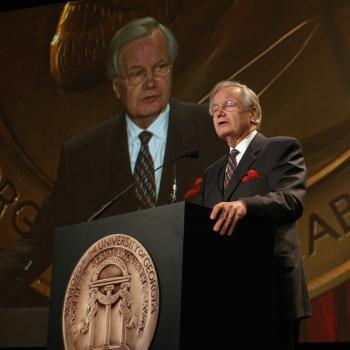
What happens when we die? Death and the afterlife remain two of the biggest mysteries in life because answers about them depend on the ultimate mystery – whether or not a Supreme Being exists.
None of us, not even the most devout Christians, can answer even basic questions about God with total certainty. Our beliefs are based on faith.
Christian beliefs about death and the afterlife are not easily explained to non-Christians because the three major branches of Christianity – Catholicism, Eastern Orthodox and Protestant – sometimes interpret the Bible differently.
And within the three divisions are more than 45,000 Christian denominations globally and more than 200 in the U.S., according to the Center for the Study of Global Christianity.
Reaching a consensus on biblical teachings is impossible, though Christians do agree on several core beliefs about what happens when we die. I’ll talk about some of them after I remind you that I’m not a Christian scholar or pastor who can delve very deeply into the breadth and depth of Christianity.
Christians disagree on whether the Bible is the only way we can know God. Most of us believe that the Holy Bible is the inspired word of God, and from it, we learn about the afterlife.
Many Protestants believe that the Bible is the sole, infallible word of God and our only authority on matters of faith. But while Catholics also look to the Bible, they say that there are other ways of knowing and understanding God.
What are Christians’ basic beliefs?
Christians accept on faith that God exists in the form of the Trinity, which is God the Father, God the Son (Jesus Christ) and God the Holy Spirit. (See my recent post on the Trinity here..)
It’s important to emphasize that we believe in one God, not three separate Gods.
Eastern Orthodox Church describes the Trinity as part of God’s unknowable essence… which refers to the three forms of one God. That’s a good way to describe it.
Christians also believe that Christ died on the cross for our sins, was resurrected and ascended into heaven, where he will judge the living and the dead at some unknown time.
The Apostle’s Creed explains core Christian beliefs this way:
I believe in God the Father Almighty, maker of heaven and earth, and in Jesus Christ, his only son, our Lord, who was conceived by the Holy Spirit, born of the Virgin Mary, suffered under Pontius Pilate, was crucified, dead and buried.* On the third day, he rose from the dead. He ascended into heaven and sitteth at the right hand of God the Father Almighty. From then he shall come to judge the quick (living) and the dead. I believe in the Holy Spirit, the holy catholic (universal) church, the communion of saints,** the forgiveness of sins, the resurrection of the body, and life everlasting. Amen.
(*Some Christians add the words, “He descended into hell.” ** The “communion of saints” refers the fellowship of people united with Christ through baptism.)
Traditionally, Christians have seen heaven and hell as physical places. Some Christians still hold to that belief, but others have begun to conclude that heaven and hell are states of mind.
People who go to heaven enjoy eternal happiness in a spiritual way, and the rest of us suffer for eternity. However, some Christians don’t believe in the existence of hell.
Again, our beliefs are based on faith.
What happens when we die?
Ecclesiastes 12:7 says that when we die, Dust returns to the earth as it was, and the spirit returns to God who gave it. In other words, our physical body dies and our spirit or soul — which is the essence of our being — leaves the body and enters into God’s presence.
There is some disagreement among Christians about a final physical resurrection of the body. However, 1 Corinthians 15:20 tells us that our resurrection will be based on what we know about Christ’s resurrection.
What is purgatory?
Catholics, unlike Protestants, believe in an intermediate state after death called purgatory. The Catholic Church defines it as a ‘purification, so as to achieve the holiness necessary to enter the joy of heaven’ which is experienced by those ‘who die in God’s grace and friendship, but still imperfectly purified.’
Protestants dismiss the idea of purgatory on the grounds that it isn’t mentioned in the Bible, while Catholics cite II Maccabees 12:39-46 to support their beliefs. Maccabees is part of the Apocrypha in the Catholic Bible but is not part of the Protestant.
Protestants also say that the men described in Maccabees were guilty of idolatry, which means they were sent to hell and there could be no atonement.
The purification that occurs in purgatory is necessary, Catholics believe, because nothing unclean will enter the presence of God in heaven, according to Revelation 21:27.
They also believe, When we die, we undergo what is called the particular, or individual judgment…. We are judged instantly and receive our reward, for good or ill. We know at once what our final destiny will be. At the end of time, when Jesus returns, there will come the general judgment to which the Bible refers, as described in Matthew 25:31-32.
Learn more about Catholics’ beliefs on purgatory by clicking here.
Who goes to heaven?
In simple terms, people who accept Christ as the fully human and fully divine Son of God and behave accordingly go to heaven. Those who don’t believe go to hell.
I struggle with this Christian belief because it forces me to conclude that all non-Christians, regardless of their relationship with God the Father, are hell-bound.
Would God really send his devout followers to hell because they don’t accept the Trinity or Christ? I can’t answer this question, nor can anyone else with certainty. But it bothers me a great deal.
This belief also causes problems in the real world because it gives Christians a reason to feel superior and entitled. Many think, We are the chosen people of God, and you aren’t.
I believe this attitude fuels animosity between Christians and non-Christians’ when we should be working together as common descendants of Abraham.
What is predestination?
Some Christians, through the 16th century theologian John Calvin, believe that ‘eternal life is foreordained for some, eternal damnation for others.’
The Presbyterian Church (U.S.A.) explains that predestination is an act of God’s will through which God elects or chooses those whom God calls to faith and thus to eternal life, and through which God chooses those who will not receive faith.
Other theologians have seen in predestination only a positive calling to eternal life. Still others have seen it as God’s foreknowledge of who would choose faith.
Learn more about predestination by clicking here.
What is judgment day?
Many Christians believe in a final judgment day in which Christ judges us. Those of us deemed acceptable go to heaven, and the rest of us go to hell. The Bible mentions judgment day throughout the New Testament.
One example is 2 Corinthians 5:10, which says: For we must all appear before the judgment seat of Christ, so that each one may receive what is due for what he has done in the body, whether good or evil. (ESV)
Romans 2:16 says this about judgment day: On that day when, according to my gospel, God judges the secrets of men by Christ Jesus. (ESV). Ecclesiastes 12:14 tells us, For God will bring every deed into judgment, with every secret thing, whether good or evil.
How do Christians describe heaven?
Secular society sometimes depicts St. Peter greeting newcomers at the pearly gates that lead into heaven, ethereal angels playing harps and people with wings and halos resting on puffy clouds. Oh yes, and streets paved with gold.
I’m highly doubtful about this view of heaven.
Many – but not all – Christians believe that heaven will be a place where our bodies reunite with our souls. According to the Catholic Church, Our bodies will be modified somehow when we are reunited with them after the resurrection.
What these modifications will be even (the Apostle) Paul did not claim to understand, though he compared the difference between our bodies now and our bodies then to the difference between a seed and the plant that is grown from the seed (1 Corinthians 15:35-44).
Elsewhere he states that Jesus ‘will change our lowly body to be like his glorious body (Philemon 3:21), raising the possibility that in our resurrected bodies we will be able to do many of the things that Christ was able to do in his resurrected form, such as appear or disappear from places at will,’ the church tells us.
Many Christians reject the idea that people will become angels or that we will sprout wings and halos. The Bible teaches that angels and humans are separate entities.
Scripture does not mention people sitting on clouds and playing harps. Nor does it say that St. Peter will man the pearly gates. The gates may owe their existence to Revelation 21:21, which describes a heavenly city that has 12 gates, each of which is made of a single pearl.
The book of Revelation also describes heavenly worshippers who use incense, trumpets, harps and other items to worship in a heavenly temple.
The Catholic Church says, These images are meant to convey a sense of wonder at what God has in store, but we must be careful of how literally we take them.
Paul warns us that ‘no eye has seen, nor ear hear, nor the heart of man conceived, what God has prepared for those who love him’ (1 Corinthians 2:9). I’m not Catholic, but I agree with Paul and the Catholic Church on this matter.
We simply don’t know.
Catholics also believe that heaven is neither an abstraction nor a physical place in the clouds but a living, personal relationship with the Holy Trinity. They also say that the fundamental essence of heaven is union with God. (Read more about how Catholics envision heaven by clicking here.
What do Christians believe about hell?
Christians have not reached a consensus about hell. Some believe it’s an actual place of eternally suffering, others think it’s a state of mind and still others think God destroys the souls of people destined for hell. And some Christians completely reject the notion of hell altogether.
My conservative childhood church emphasized eternal hellfire and damnation. Sinners would suffer untold misery in eternal lakes of fire because of things that they did or didn’t do during their lives.
Mark 9:48 says that Christ speaks of unending suffering and describes hell as an eternal place where their worm does not die and the fire is not quenched. It’s also been described as a place where our souls are separated from God for eternity.
What happens when we die?
No one can answer that question, either. Christians’ beliefs about heaven and hell are rather fuzzy because the Bible doesn’t give us concrete answers to many of our questions. Revelation 14:13 does, however, assure us that we will find perfect peace and rest in heaven.
The United Religious Initiative (URI) and Cru are good places to learn more about basic Christian beliefs. URI is a global interfaith network that brings people together “to bridge religious and cultural differences and work together for the good of their communities and the world. Cru is an interdenominational organization that “offers spiritual guidance, resources and programs tailed to people from all cultures.”
I suggest these resources because they provide an interdenominational perspective, rather than the different beliefs of various denominations. Learn more from URI here. To read more from Cru, click here.













